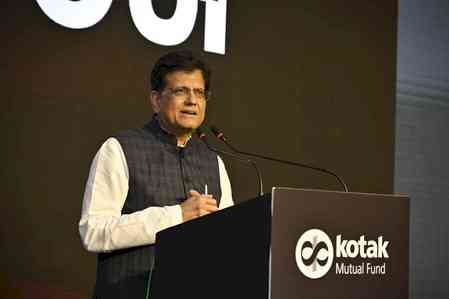Centre issues new guidelines to protect consumers from misleading ads
The Centre on Friday said it has notified 'Guidelines for Prevention of Misleading Advertisements and Endorsements for Misleading Advertisements, 2022' with an objective to curb "misleading advertisements" and protect the consumers, who may be exploited or affected by such advertisements.

New Delhi, June 10 (IANS) The Centre on Friday said it has notified 'Guidelines for Prevention of Misleading Advertisements and Endorsements for Misleading Advertisements, 2022' with an objective to curb "misleading advertisements" and protect the consumers, who may be exploited or affected by such advertisements.
"The guidelines seek to ensure that consumers are not being fooled with unsubstantiated claims, exaggerated promises, misinformation and false claims. Such advertisements violate various rights of consumers such as right to be informed, right to choose and right to be safeguarded against potentially unsafe products and services," Additional Secretary, Consumer Affairs, Nidhi Khare told media persons.
The guidelines were issued by the Central Consumer Protection Authority (CCPA) under the Department of Consumer Affairs late Thursday night and are effective from Friday itself.
Stating that "misleading advertisement" has already been defined under section 2(28) of the Consumer Protection Act, 2019 already, Khare said: "The present guidelines define 'bait advertisement', 'surrogate advertisement' and clearly provide what constitutes 'free claim advertisements'.
"Bait advertisement" means an advertisement in which goods, products or services are offered for sale at a low price to attract consumers. The conditions for bait advertisements include that the advertiser shall not seek to entice consumers to purchase without a reasonable prospect of selling such advertised goods or services at offered price and it shall also ensure that there is adequate supply of goods, products or services to meet foreseeable demand generated by such advertisement," she said.
In case of claims of 'free' products, if the estimated demand exceeds the supply, such advertisement shall make clear that the stock of the goods or services is limited.
"In other words, the advertisement should not describe any goods, product or service to be 'free', 'without charge' or use such other terms if the consumer has to pay anything other than the unavoidable cost of responding to such advertisement and collecting or paying for the delivery of such item," Khare said.
Among other things, it should not use the term 'free trial' to describe a 'satisfaction or your money back' offer or an offer for which a non-refundable purchase is required, the Guidelines said.


 IANS
IANS 









